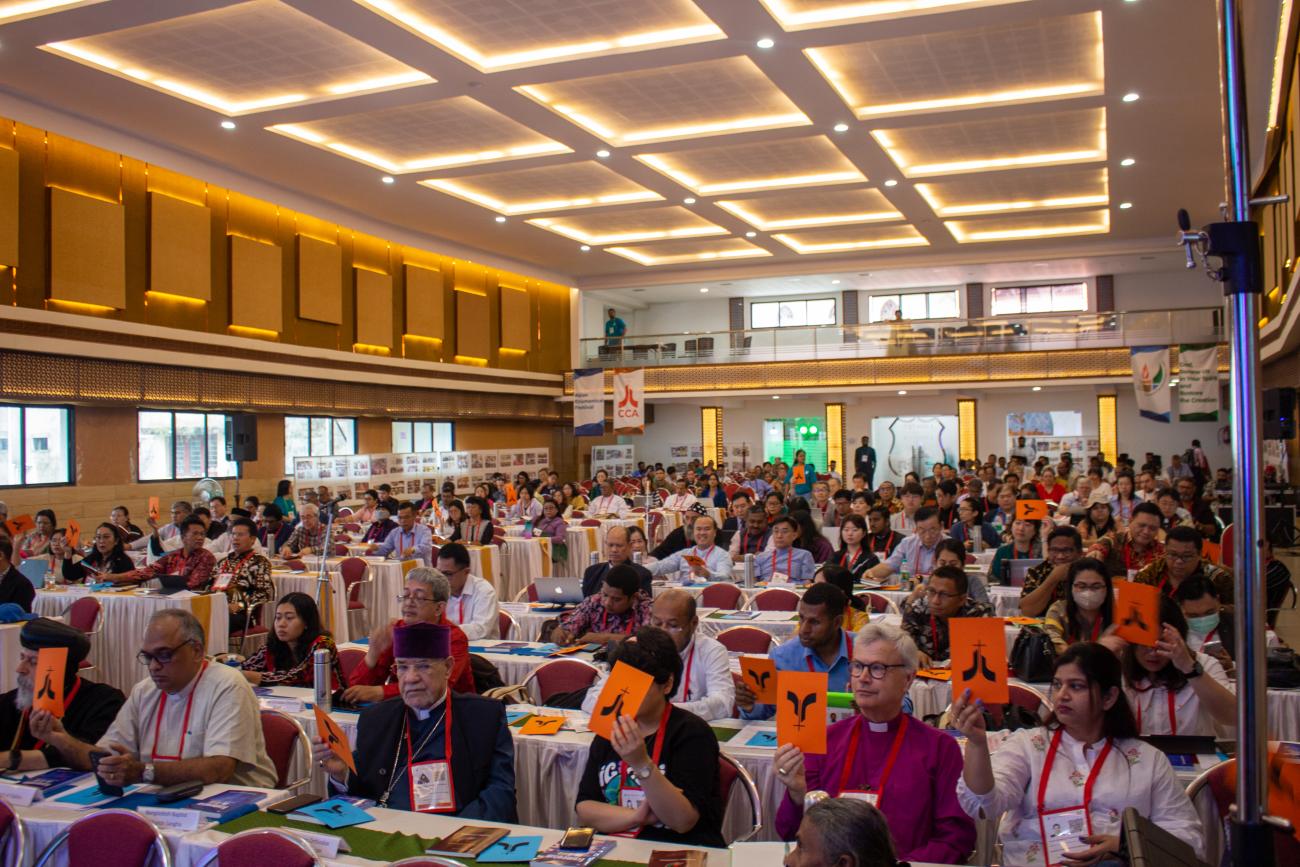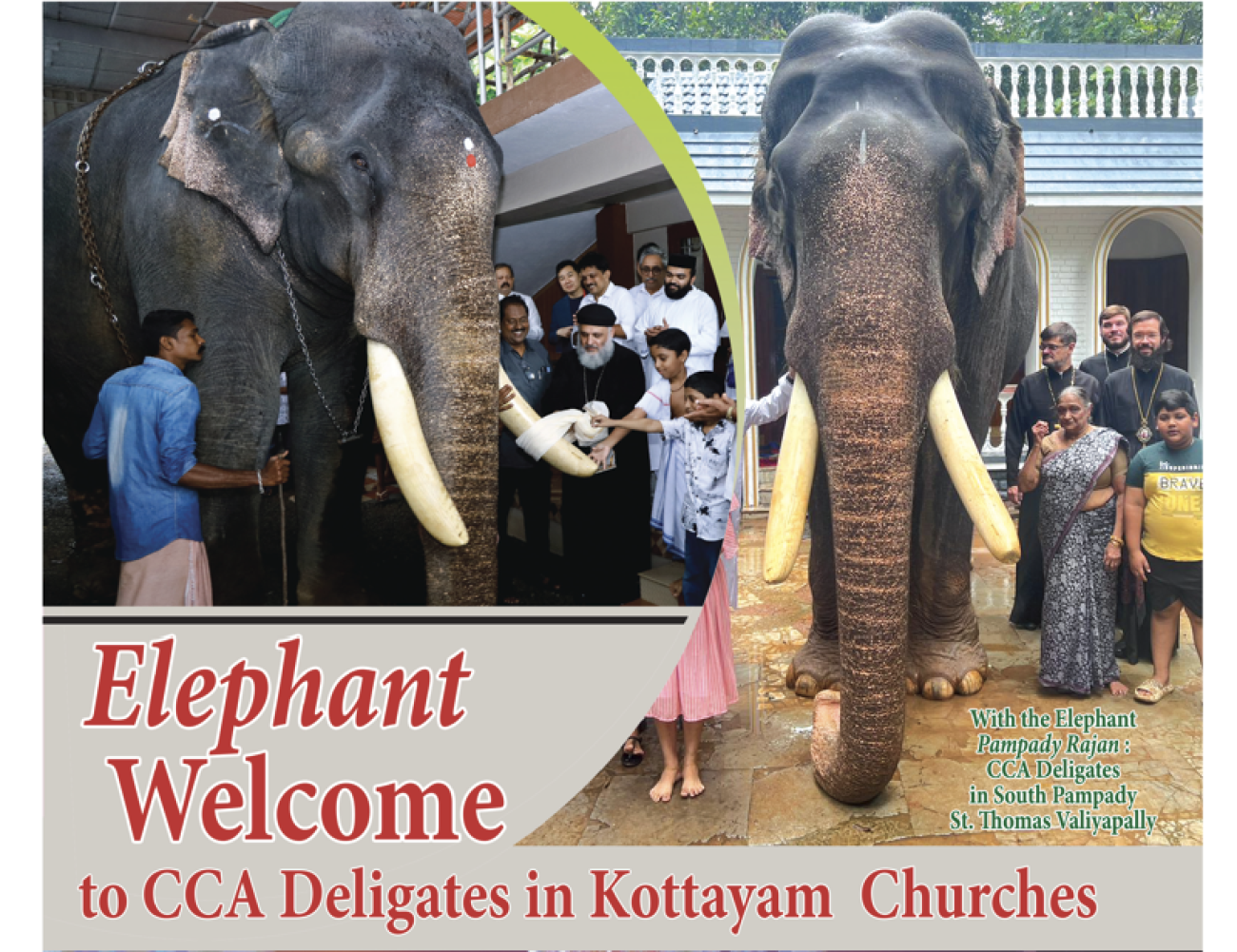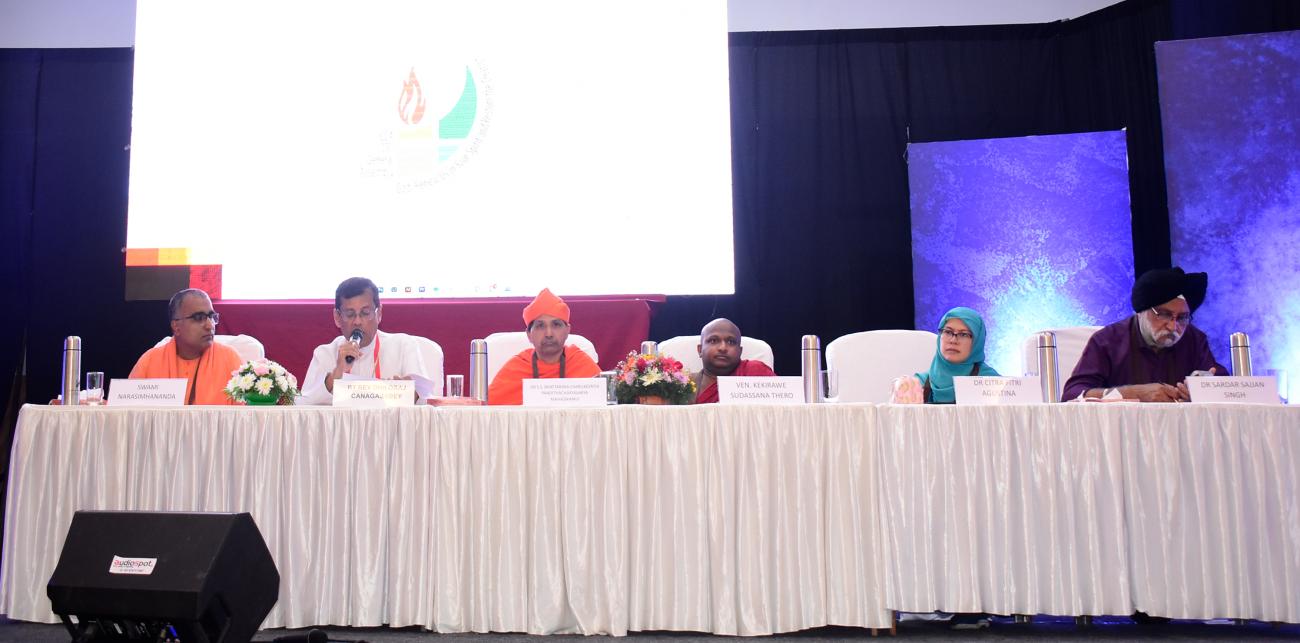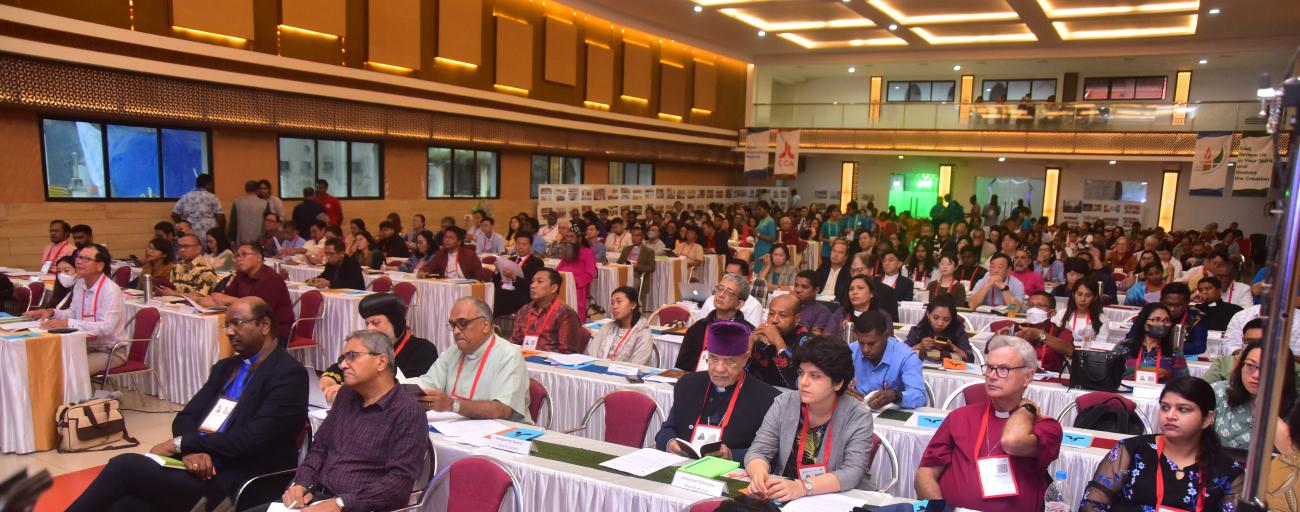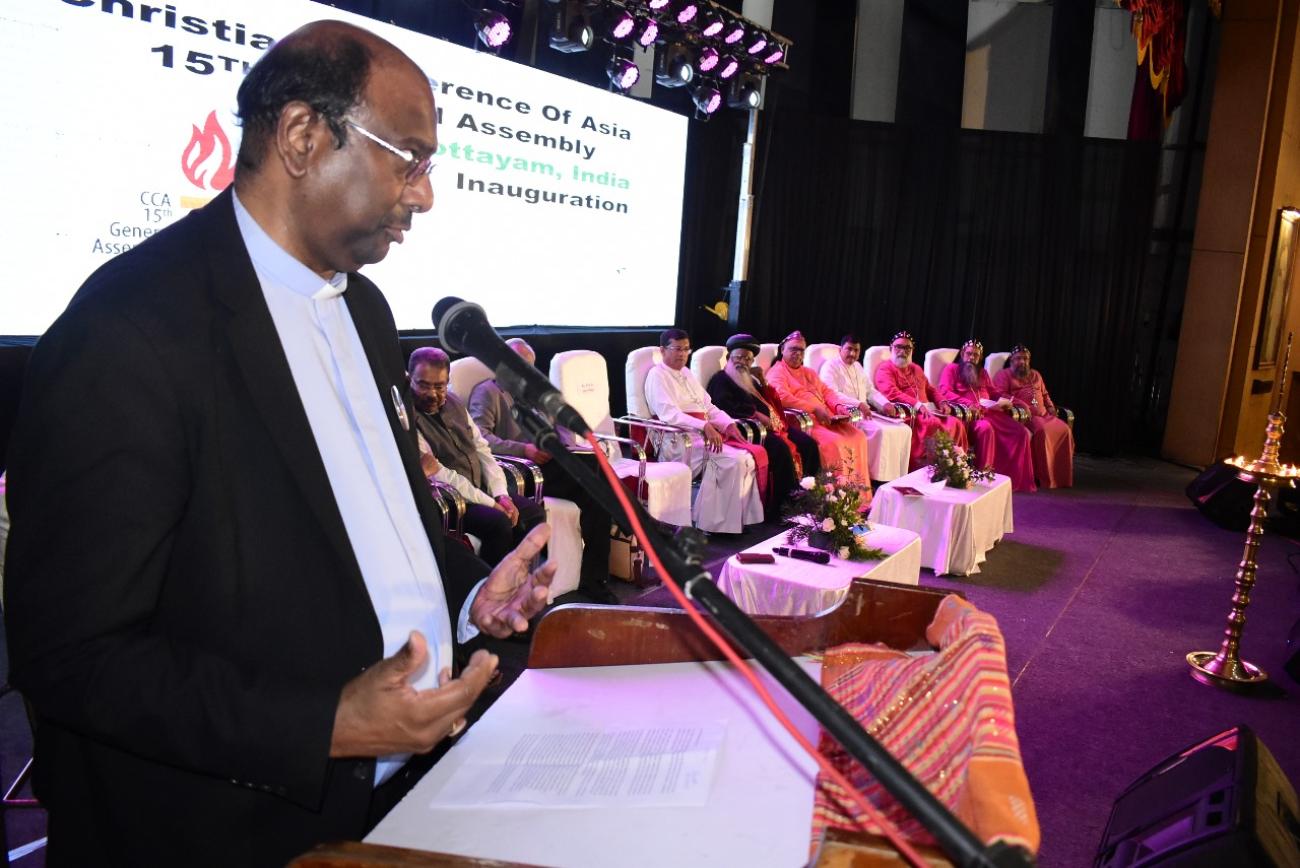Plight of forgotten victims of Endosulfan pesticides formed focus of D.T. Niles Memorial Lecture at CCA General Assembly
Kottayam, India: The D.T. Niles Memorial Lecture at the 15th General Assembly of the Christian Conference of Asia (CCA) was given in the form of a dramatised visual presentation, by renowned social and human rights activist, Dayabai, an Indian Roman Catholic nun turned social activist.
The D.T. Niles Memorial Lecture is an integral part of every CCA General Assembly organised in memory of the Rev. Dr D.T. Niles (1908–1970), the first General Secretary of the CCA. Dr Niles was known not only in Asia but worldwide as one of the great leaders of the ecumenical movement, an evangelist, and a statesman.
Dayabai, an octogenarian full-time social activist who works for the tribal population in the midlands of India, has settled with the Gonds of the Chhindwara district in Madhya Pradesh. An ardent practitioner of the theology of liberation, she consistently campaigns for the empowerment and development of neglected villages, tribal people, and forest dwellers. Dayabai has been associated with the ‘Narmada Bachao Andolan’, an environmental campaign to save River Narmada against several large dam projects.
The focus of Dayabai’s speech through dramatisation was focused on the plight and pain of the victims of Kerala’s Endosulfan pesticides victims and the tragedy they have been experiencing for years.
Endosulfan, a pesticide developed in 1954, was extensively used in farming with high consumption in the 1980s and 1990s. Later, it was found to be highly toxic to human health and the environment. It poisoned entire populations of useful and necessary insects, and also caused many ailments including skin irritations, destruction of nerve tissues, and reproductive and developmental damage in human beings and animals.
Prone to long-range atmospheric transport, the highly neurotoxic pesticide has since been linked to a multitude of neurological and developmental ailments among the villagers working in the plantations.
Choosing to live among the poorest of the poor, Dayabai went on hunger strikes and fasts to draw attention to the victims of the Endosulfan tragedy. She lamented the shift from “agri-culture” to “agri-business”, highlighted the interconnectedness of humans and the environment, and said that social or class hierarchies were responsible for much environmental degradation and devaluation. Dayabai emphasised, “Agriculture means enriching the mother earth.”
According to Dayabai, among other measures to protect the environment, it was necessary to develop a balanced and holistic view of the interconnectedness of all species’ health and well-being. She said, “Everything is interconnected, all should be living healthy, relating to one another.” She believed that social hierarchy was the root cause of environmental and social crises. The common notion is that planting trees is the only solution to the ecological crisis, but people living in healthy harmony was of prime importance.
The 83-year-old doyen of social activism opined that the greatest challenge faced by humanity is the loss of respect and dignity. She quoted Matthew 19:24: “I'll say it again––it is easier for a camel to go through the eye of a needle than for a rich person to enter the Kingdom of God!” Humans are driven by their greed and selfishness and need motivation for a change in attitude. Humans as residents of the earth should have other-oriented thinking and minimise cravings to live a balanced life.
She called the attention of the audience to the existing educational crisis where there is only literacy. Education did not mean literacy; it was something much beyond that. Parents had a significant role in moulding the right values in childhood.
During her hour-long presentation, she dramatised the heartrending suffering of those children born with neurological and genetic disorders caused by the pesticide.
The powerful presentation by Dayabai received a standing ovation from the Assembly participants. It was a sobering call to awaken to the immense damage wreaked on the environment and on people, and underscored the urgent need to be in solidarity and accompaniment with those who were silently suffering the cost of greed and profit.
For more photos (photo gallery) please click here: General Session 5: Social Activist Dayabai deliever D.T. Niles Memorial Lecture, 2 October 2023


